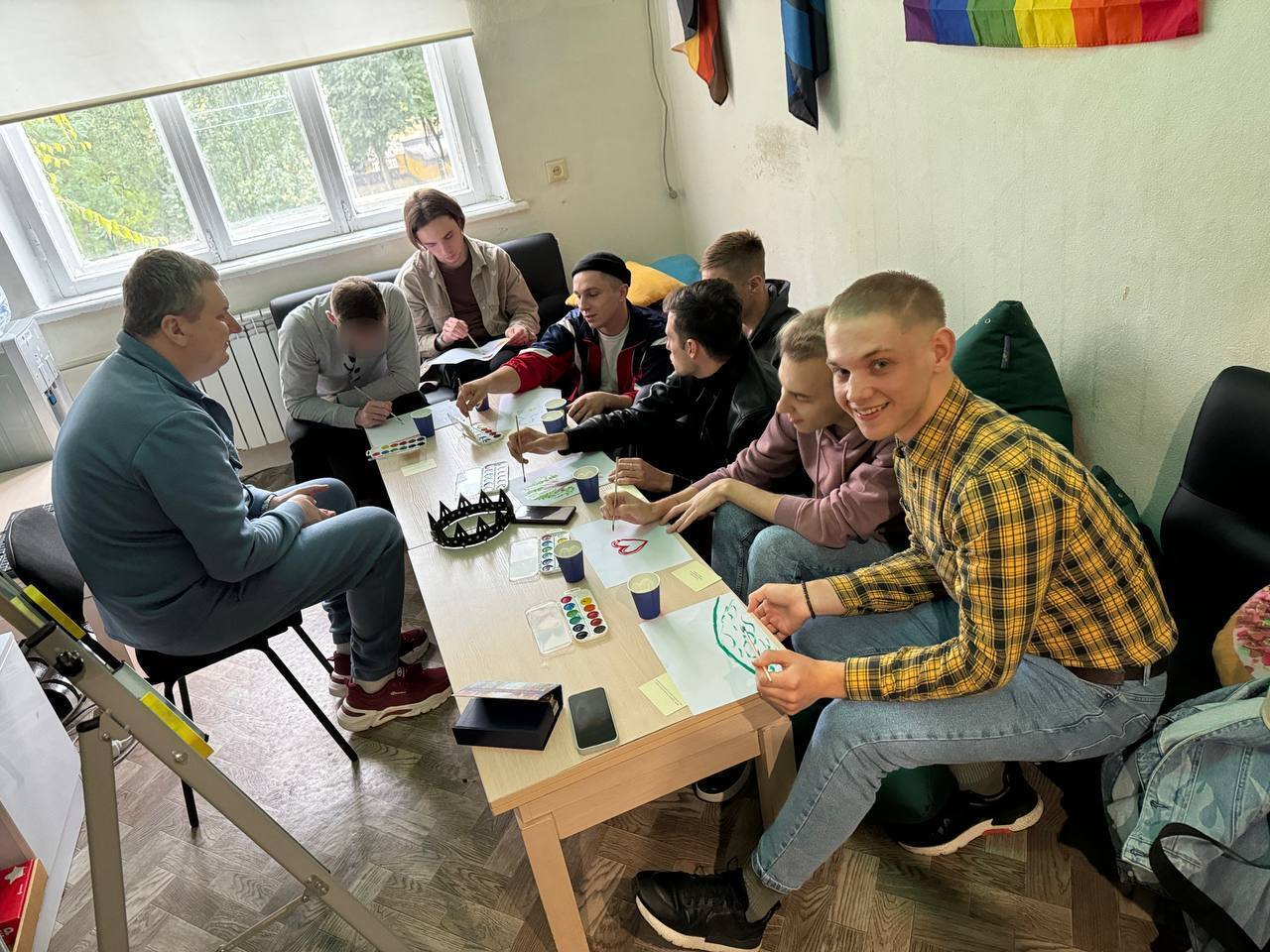Improving mental health and well-being in Ukraine

“I have learned to dream. Thanks to group meetings with a psychologist, I was able to see and feel myself in the future. I created my own dance courses and started teaching. I share my knowledge and experience with others – it helps me to become better. Together with a psychologist, we reviewed our desires and dreams, distinguished the main from the secondary, and I saw the real me. I learned to love myself.” – Dmitry, Alliance Global program participant
On Feb. 24, 2022, Russia began a broad military assault on Ukraine. Since then, millions of Ukrainians have endured intense hostilities, which killed and injured thousands of civilians, forced millions from their homes, and destroyed livelihoods. To this day, civilian infrastructure, including aid facilities, is being attacked.
In 2024, 14.6 million people, about 40% of the population, need humanitarian assistance in Ukraine. Some 6.3 million people have fled the country and remain refugees, mainly across Europe.
The psychological consequences of the war in Ukraine can seem invisible, but that does not mean they aren’t there. As the crisis continues, mental health providers are seeing worsening psychological symptoms. The constant risk to life and health, as well as the challenges caused by the humanitarian crisis and lack of food, water, electricity and communication, lead to chronic stress and affect mental health. In February 2024, the IFRC Psychosocial Centre reported that psychological assistance requests are on the rise in Ukraine.
In 2023, the Center for Disaster Philanthropy awarded a grant from the CDP Ukraine Humanitarian Crisis Recovery Fund to Alliance Global to increase organizational capacity, improve resilience, and create the conditions conducive to a more sustainable recovery and rehabilitation of marginalized and conflict-affected LGBTQIA+ people through improved mental health. This support was targeted at affected communities in Ukraine, as well as the organizational staff and frontline workers who are at risk of burnout due to the compounding impacts of their work and the fact that they, themselves, are affected by the war.
LGBTQIA+ people in Ukraine have long faced stigma and have been subject to a widespread negative perception by parts of Ukrainian society. Even before the war, there were instances of hate speech, discrimination, harassment and abuse of LGBTQIA+ people in Ukraine. According to a report by the UN Protection Cluster and UN High Commissioner for Refugees, LGBTQIA+ and gender-diverse people are vulnerable to acts of stigmatization, harassment and violence from both armed combatants and civilians in the context of the armed conflict. As a result, the LGBTIQ+ population in Ukraine has experienced heightened levels of fear and anxiety, reflecting a need for non-discriminatory and safe access to psychosocial support.
The goal of Alliance Global’s project was to provide effective, individualized psychological support that considers the conditions of war and the unique needs of LGBTQIA+ populations and promotes mental health and well-being. With funding from CDP, the Alliance Global team built a network of online psychologists throughout Ukraine to work with representatives of LGBTQIA+ communities to reduce the negative mental health impacts of the war. The team also established a presence in four cities in Ukraine: Kyiv, the capital; the frontline cities of Dnipro and Kharkiv; and Lviv, which is located in the west of the country and has seen the largest migration of people since the beginning of the invasion.
Throughout 2023 alone, project psychologists provided services to 343 clients through 807 consultations. The main topics addressed were anxiety, depression, panic attacks, post-traumatic stress, dissociation, trust in relationships, feelings of loneliness, defending one’s boundaries, the effects of bullying and emotional exhaustion.
Alliance Global also hosted 26 group events focused on connection and wellness, with a total of 166 participants benefitting from the events.
Participants reported increased self-confidence, an improved sense of well-being, and a strong desire to share their experiences, strength, hope and knowledge with others. Alliance Global has helped and will continue to help a significant number of LGBTQIA+ people overcome the negative consequences of a large-scale war, improve their overall mental health, and provide them with the motivation and inspiration to continue to lead a full and quality life in Ukraine.
“I was supported and believed in. I am now studying and setting an example for others that it is possible to be yourself and improve yourself.” – Serhii, Alliance Global program participant
Another equally important goal of the project was to create a positive perception of the need for mental health care in Ukrainian society. Historically, such practices have not been met with resistance or stigmatization in Ukraine, but they have been perceived as something that is not very necessary.
According to UA Mental Help, a mental health organization in Ukraine, the number of visits to psychologists by Ukrainians tripled in 2023 compared to the previous year. More people need psychological help because of the war and are not afraid to seek it. A significant proportion of these people are young people between the ages of 18 and 22.
LGBTQIA+ people face unique challenges that greatly increase their need for mental health care. Creating a positive perception of such practices can greatly enhance Alliance Global’s ability to overcome the growing mental health crisis in Ukrainian society.
Alliance Global’s work in Ukraine continues. The organization plans to provide 1,380 individual consultations and 138 psychotherapeutic groups for LGBTQIA+ populations throughout the two-year period of the grant.
CDP is proud to support Alliance Global’s efforts to improve the mental health and psychological well-being of some of the most marginalized groups in conflict-affected communities throughout Ukraine.
Story by Ruja Entcheva
